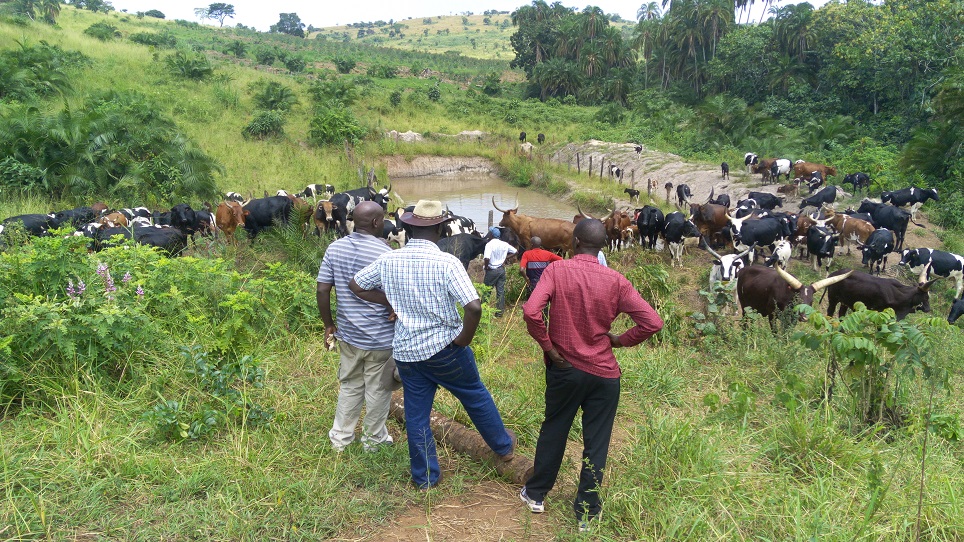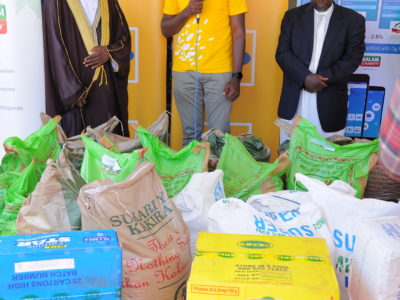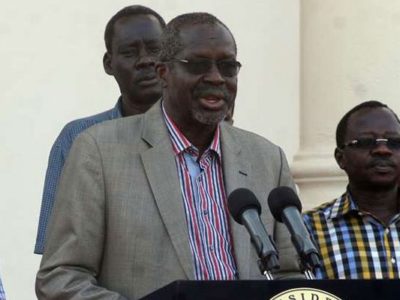
Uganda is experiencing climate change effects including: unpredictable and/or intense rainfall, droughts, floods, landslides and increased spread and identification of new strains of crop and livestock diseases. These changes are impacting food supply and will affect food quality, access and utilization, threatening food and income security in the country, especially among farming communities.
According to Mr Kennedy Ndubuisi Igbokwe, a climate change expert says the situation calls for investments in adoption of sustainable land, forestry, fisheries, and water management practices to help vulnerable communities adapt to climate change and mitigate its effects.
The Cattle Corridor in Uganda is said to be one area most affected by climate change. The vast area stretches from south-western to north-eastern Uganda, dominated by livestock production, with scarce water and pasture.
Given the cattle corridor’s vulnerability to climate change and its relevance to national and local food security, Mr Ndubuisi says the Food and Agriculture Organization of the United Nations (FAO), together with the Ministry of Water and Environment (MWE) and Ministry of Agriculture, Animal Industry and Fisheries (MAAIF), have implemented the Global Climate Change Alliance: Agriculture Adaptation to Climate Change (GCCA) project to support developing countries like Uganda, that are most affected but have the least capacity to deal with climate change. Implemented from July 2012 to January 2017, GCCA covered the central cattle corridor districts of: Nakasongola, Luwero, Nakaseke, Kiboga, Mubende and Sembabule.
The project was funded by the European Union with contributions from Irish Government and the Royal Kingdom of Belgium. GCCA helped to strengthen skills of communities, commercial farmers and Government to respond to and mitigate climate change vagaries through training, enhancing access to water for livestock and crops and using FAO’s Farmer Field Schools (FFS) model to promote community-driven adaptation. Through the FFS model, 756 FFS were formed, directly benefitting 22 000 households.
These are testing, promoting and adapting various climate change technologies and practices, including: village savings and loans mechanisms, pasture improvement, bio-energy plantations for wood fuel and income generation, resilient seed multiplication, small-scale irrigation and watershed management. Twenty four reservoirs with total annual carrying capacity of over 220 000 cubic meters of water were built to sustain over 40 000 heads of cattle during dry months while providing supplementary irrigation to crops and for domestic uses.
Through GCCA, Uganda now boasts of a one-stop climate change resource center at the Ministry of Water and Environment, from where the public and Government officials can access reliable information and data on climate change trends in the country, to predict weather changes and make sound mitigation and adaptation plans. Additionally, many Government officials, Parliamentarians, as well as officials from community-based organizations, districts and sub counties received training on climate change adaptation, to support their policy and decision-making.
Zonal Agriculture Research and Development Institutes in Nabuin (Karamoja), Buginyanya, Ngetta and Mbarara received information technology equipment, greenhouses, rainwater harvesting and drip and solar-powered irrigation systems to support research. Furthermore, GCCA, helped the Government of Uganda to integrate climate change actions into the National Development Plan II (2015/16 -2019/20); reinforcing Government’s commitment to addressing climate change. Central cattle corridor districts have also formed Climate Change Task Forces and integrated climate change into district development plans and budgets.
All these interventions serve to reinforce the immediacy of climate change, its effects on lives and agriculture and the urgency to address the proverbial elephant in the room. More training is needed to help leaders to address practical barriers such as policy and funding gaps, enabling districts to develop and implement adaptation plans and scaling up good practices to ease climate change.
Availability of and access to water for crop and livestock production remain critical if rural communities should become more resilient to climate change. However, through public-private partnerships, technologies such as small and medium-scale water systems, construction of valley tanks and dams and using multiple sources of water (groundwater, rain water harvesting, river/lake diversions etc.), rural communities can better manage climate change effects. Youth can also become agents to fill extension gaps in water management for production if they are given technical and entrepreneurship skills. The FFS approach is cost-effective in empowering rural communities, including illiterate women to increase their knowledge, skills and ability to climate change adaptation decisions. Rural communities should be engaged in participatory and collective decision-making to identify, assess, finance and manage climate change adaptation options.
From early 2018, FAO will implement a 5-year phase two of GCCA (GCCA+): Scaling up Agriculture Adaptation to Climate Change in Uganda. With a budget of eight million Euro from the European Union, this phase will contribute to sustainable climate change interventions, while strengthening gender responsive resilience to climate change, watershed ecosystem management, value-chain development and market linkages, knowledge management and communication to promote food security for rural populations in nine districts of the central cattle corridor. These are: Nakasongola, Nakaseke, Luwero, Mubende, Kiboga, Sembabule (from the first phase), Lyantonde, Gomba and Kalungu. The latter three are new vulnerable adjacent districts.









